
– Photo by Jan Ketchel
Here is the channeled message for this week, may it provide the guidance you seek. Wishing you all abundance from the bountifulness of our hearts!
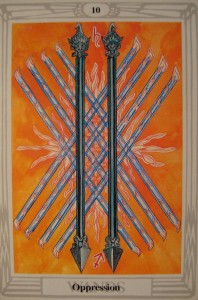
The core intent of defense is to protect. Defenses are the actions of the survival instinct; they are nature at work. Both Freud and Jung agreed that psychological defenses originated beneath consciousness, a product of the instinctual or archetypal psyche.
We do not choose our defenses; they are the automatic compulsive actions the deep psyche employs to protect the self against real or imagined threats. Two of the most powerful and deeply-rooted-in-nature defenses are projection and dissociation.
If we feel uncomfortable within ourselves about something we’ve said, done, thought, or felt, our protective psyche might assess this as a threat to our self-esteem or ego integrity. Its response might be to employ the defense of projection whereby it literally projects blame outside of the self, rearranging our conscious perception of reality to keep the culprit at a safe distance, securely planted in someone else. On a grand scale this is how America keeps itself safe from facing its own deviousness: the bad guy is always the devil somewhere else, who we have to eliminate, thus our moral superiority is preserved.
Dissociation is perhaps nature’s most powerful defense. When we are confronted with a danger inwardly or outwardly—that our unconscious deems potentially lethal—dissociation will save us by splitting us into pieces, preserving our most precious and vital self by submerging it deeply within the safekeeping womb of the unconscious. Outwardly, parts of our ego self remain at the surface as an adaptive or survival self, functionally charged with navigating life disconnected from its wholeness. The English psychoanalyst Winnicott called this self the false self because it always senses that it is just functioning or pretending to be engaged in life, secretly knowing that its most vital parts no longer participate in outer life.
Projection and dissociation are archetypal defenses of the instinctive psyche. These are the default settings of our self-preservation. Unfortunately, when life is governed by these defenses it may be safe but totally unsatisfying, as life’s deepest needs go unmet. If the adult self attempts to raise its vulnerable parts and bring them into life, the instinctive psyche frequently opposes this action and sabotages the effort using negative thoughts, guilt, or shame. The instinctive psyche is invested in survival; wholeness threatens survival, as we are challenged to own fully our projected and dissociated parts, which may be laden with traumatic experience that could threaten ego integrity.
The solution to this dilemma lies in recapitulation. In recapitulation the adult self takes 100% responsibility for healing, releasing the instinctive psyche of its automatic protection. As the adult ego bears the full tension of encountering and integrating its parts, the instinctive psyche simultaneously tests the adult self, confronting it with all that has been projected and dissociated from and all of its accompanying terrors of disintegration. This testing process of the adult ego’s ability to manage the fullness of the self is a necessary interaction between archetypal defense and conscious ego. This may result in a one-step forward two-steps back kind of process for a while, but ultimately, once the instinctive psyche sees the ego’s ability to manage its own healing, the higher self is freed to support the ego in the recapitulation process through increasing synchronicities, dreams, and visions that lead to retrieval of its lost wholeness.
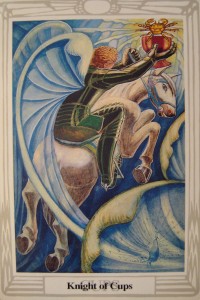
Evolution is really about assuming full conscious responsibility for our lives so that we may be available for all else that is. If we allow our unconscious nature to merely keep us safe, it will, but only through its compulsive defenses and at the expense of our wholeness, our fulfillment, and our evolutionary potential. Is that really satisfying? Or are we ready to do the work to free ourselves from the divisiveness of our instinctual defenses and claim our true wholeness?
Recapitulation is work that is evolutionary for the individual—know thy self—and the world-at-large too. In moving beyond our personal projections and dissociations we open ourselves to more fully experiencing and participating in life in ways that we are unavailable for while under the control of nature’s defenses.
There exists another aspect to nature as well, the interconnected oneness of everything, and that’s really the nature our evolutionary self is striving to discover and cultivate. In fact, the collective charge of our time seems to be pushing us all to go beyond the self. That is really our greatest evolutionary endeavor.
Going beyond, with love and gratitude,
Chuck
Note: We pulled these two cards this morning, certainly in alignment with the publishing of this blog and our pursuit of truth and spirit.

I had dreams when I was young. Those dreams always centered around a contemplative life. My Catholic schoolgirl self envisioned joining a convent, one that fostered a life of silence and prayer. I thought that would be the perfect life.
In my teenage years I contemplated the hermit’s life, living alone in some remote area, far removed from society in search of nirvana. As I grew up, left home and went out into the world, I still wished for and dreamed of retreat, for the safety and freedom of a solitary place where I could just be.
At my core I was always aware that I had such dreams because I was afraid of the world, but little did I know the reason for my fears. I did not know that I had already encountered frightening evil.
Over the past few nights, while dreaming, I have encountered a woman. She confronts me. The first night she sat next to me. She stared at my hands and arms, which I held in my lap. “Why aren’t you wearing any of Jeanne’s jewelry? Why aren’t you wearing anything that belonged to her?” she asked me. “It doesn’t matter,” I said in my usual humble and self-deprecating manner. “I’m not special, and besides anyone can do what I do.”
Last night she came back into my dream. This time I passed by her on a street. “Bitch!” she said to me as she walked quickly past. Behind me I could hear another woman ask her why she had said that to me. “We have to harass her,” she said.
These two dreams make sense to me as I seek balance in my life, as I constantly seek to fully accept and own who I am, all parts of myself. In the first dream the woman was confronting me about my spiritual side and my work as a spiritual being. Am I truly owning her? Do I fully live as the spiritual being I have worked so hard to become, a being with the ability to channel?
In the second dream, the woman is asking me to confront my human self, all the things I have done in this life, all the moods, angers, deceits, and fears that make me human. I must fully embrace and own her too. The woman in my dream asks me to fully express all parts of myself, without holding back, to fully be both the spiritual being that I am and the visceral human, bitch or otherwise, that I am.

And I do need to be harassed. If I am to know who I truly am, I must constantly be confronted, in dreams and in reality. All of this is part of actively living a contemplative life. I already know that if I go too far over to the contemplative side I ignore my human self. If I get too human I ignore my spiritual self. But what I realize, and have for a long time now, is that my dreams of living a contemplative life have always been my reality. I have always been a contemplative person. Most of us are.
I did not go into a convent or retreat to a mountaintop, but I did create my own reality. I did secure myself a life of contemplation in all that I chose to do in life. I was always living my dream. But when we are in the midst of life we might not realize this, though I see how my intentions—what I told myself I wanted—became my life. I lived the solitary life of a freelance artist and writer, not in a convent or a cave on the side of a mountain but sequestered in my studio. I ventured out into the world to deliver one assignment and secure my next, but for the most part I lived in solitude. And I liked it that way.
I also now know that my contemplative life has evolved me forward into something more like my childhood dreams, into a life full of opportunities to experience the purity and freedom to just be; what was always at the root of my desire for retreat. But I had to go through the trials of recapitulation to get here, like the confrontations with the dark side of the soul that all contemplatives must face if they are to evolve into the spiritual beings they dream of becoming too.
At this point in my life, as I look back on the journey I’ve taken, I see the bigger picture now, but we have the opportunity to do this all the time, to pause and contemplate where we have been. We always have the opportunity to ask: What are the messages I’m giving myself? What reality do I want to create for myself? What dreams have I been dreaming my whole life? Am I fulfilling them? Are they truly my dreams, coming wholly from within? Or am I trying to fulfill the dreams or uphold the demands of another? Am I living the life I really want to live? The answers to such questions may be surprising!
I see very clearly that my childhood dreams of the contemplative life came solely from within. They were indicating the way to both my salvation and my darkness, or rather that through contemplating my darkness I would achieve the salvation I had really been dreaming about all along. I was not fully conscious of this when I was young, but when I think about it now I realize there was no other choice for me, and so I have to say that at some level of consciousness I really was aware that I was totally on the right path, solitary though it was.

My spiritual self wishes to tell you that you too will get to a place of freedom and purity, but my human self needs you to know that it may be a tough road—if life harasses you, that’s good! But both sides of myself would also say that if you look at where you are right now, and contemplate how you got here and what your dreams are, perhaps you will find that you are right where you always wanted to be. You might be taking your own path of heart, living a life that is directed solely from within.
Had I been given the insight that I now have when I was in my twenties, would it have mattered? Yes, I think it would have. And in truth I was being given advice and insight every day of my life, as we all are, by the world outside of me and by my deepest conflicts within. It’s just how life is, whether we are contemplating it or not.
Sending love as you take life one day at a time, trusting that you are on your path of heart,
Jan
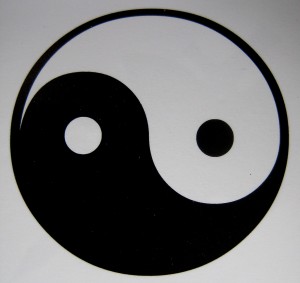
We live in a world of polarities. We come into life; we die. You can’t have one without the other; they are opposite sides of the same coin. To obtain the full value of that two-sided coin we must integrate both of its sides, positive and negative. By merging this seeming opposition into its true wholeness we allow fulfillment in this life and at death, as we seek to continue resolved of this life.
If we consider being positive as seeing the good qualities, the brighter side of life, we can see how a positive attitude invites openness, joining and expansion in our life decisions. Conversely, if we see being negative as a focus on the bad qualities of someone or something, we can see how a negative attitude helps us to create sharp boundaries and separateness, conservatively generating protection from the potential ill-effects of contact beyond the self.
In effect, positive moves us toward greater union, negative maintains protective boundaries. From this perspective we can appreciate both positive and negative as necessary attitudes to regulate and navigate life.
If I am to remain open to new life, be it through a relationship, experience or opportunity, I must be able to see the potential good in all of these situations. On the other hand, if I am to properly protect myself I must be open to seeing the predatory and dangerous potential in all encounters with living beings and life’s offerings.
Successful navigation of life necessitates the ability to integrate both negative and positive perspectives. We are all bipolar beings who must find the right balance of positive and negative perspectives. Bipolar disorder is actually a failure to find a constructive integration of these bipolar attitudes.
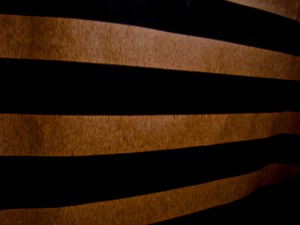
In extreme cases we see a lack of corrective balance between poles where an individual clings too rigidly to one pole or another. For example, an extreme attachment to the positive pole can lead to such expansiveness that one gives up sleeping, hits the casinos and exhausts a life’s savings on a whim, seeing no need for limitation.
At the other extreme, over-attachment to the negative pole can lead to such a deep sense of futility in engaging in life that one might sink into a suicidal depression. In actuality, bipolar disorder leads to powerful mood swings. Eventually, the clinging to one pole exhausts into the opposite side, be it from negative to positive or visa-versa.
We live in a time where negativity and cynicism dominate. On one level this is an honest reaction to the expansive one-sided attitude of wealth and capital that sees no need for limitation, sharing, or protection of the environment.
However, when negativity is overly dominant it tends to generate a feeling of powerlessness, with little energy left to make any effort toward positive change. While we need to respect the truths that the negative perspective reveals, we must also be mindful of becoming too polarized to this extreme, which can lead to inertia and indifference.
On the other hand, sometimes depression is necessary, as life as it has been lived must be halted while we go inward to find the seeds of new positive life. Seedlings require care and attention, as does bringing new parts of the self into life. This is not the time of rapid expansion indicative of a dominantly positive attitude.
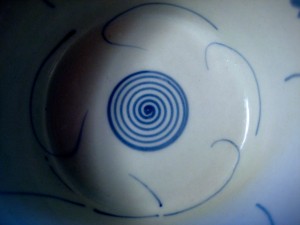
Even in the midst of a depression, however, I generally suggest remaining positively negative. That is, to hold onto the positive knowing that even a depression is but a stage in the birth of new life with its eventual return to expansiveness that in due time will recede and acquiesce to even newer life, as we take our ever-evolving journey.
On that infinite journey,
Chuck